This month we provide an update on the Hôpital de la Miséricorde and analyze controversial plans by Hydro-Québec to integrate an electricity substation into the haunted site. The ghost-ridden Hôpital de la Miséricorde has been empty for years and is starting to crumble. Located on prime real estate in Downtown Montreal...
Welcome to the seventy-ninth installment of the Haunted Montreal Blog!
With over 500 documented ghost stories, Montreal is easily the most haunted city in Canada, if not all of North America. Haunted Montreal dedicates itself to researching these paranormal tales, and the Haunted Montreal Blog unveils a newly researched Montreal ghost story on the 13th of every month!
This service is free and you can sign up to our mailing list (top, right-hand corner for desktops and at the bottom for mobile devices) if you wish to receive it every month on the 13th! The blog is published in both English and French!
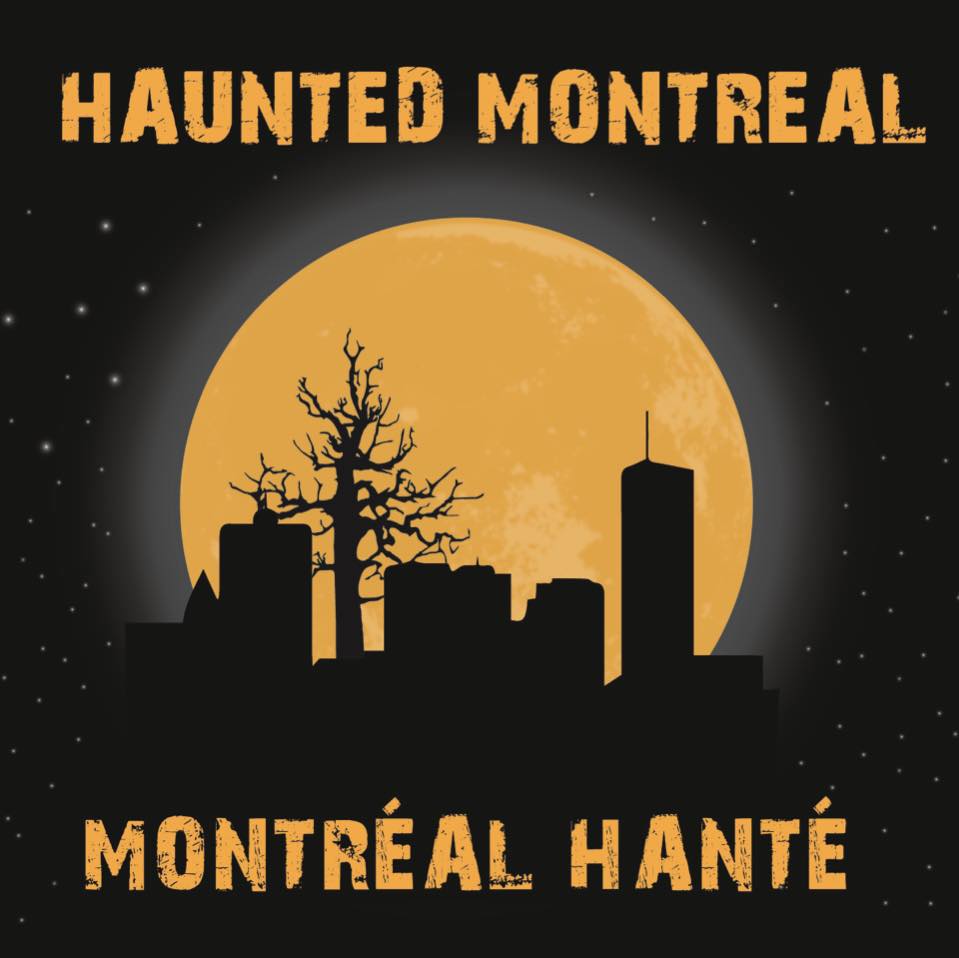
Firstly, we are happy to announce that our team is releasing videos of ghost stories from the Haunted Montreal Blog every Saturday, in both languages!
Our hosts include Holly Rhiannon (in English) and Dr. Mab (in French).
Furthermore, the Public Health Department is easing restrictions in bars, so we are re-booting our Haunted Pub Crawl as of Sunday, March 27th. It will be offered every Sunday at 3 pm in English and on the last Sunday of the month at 4 pm in French.
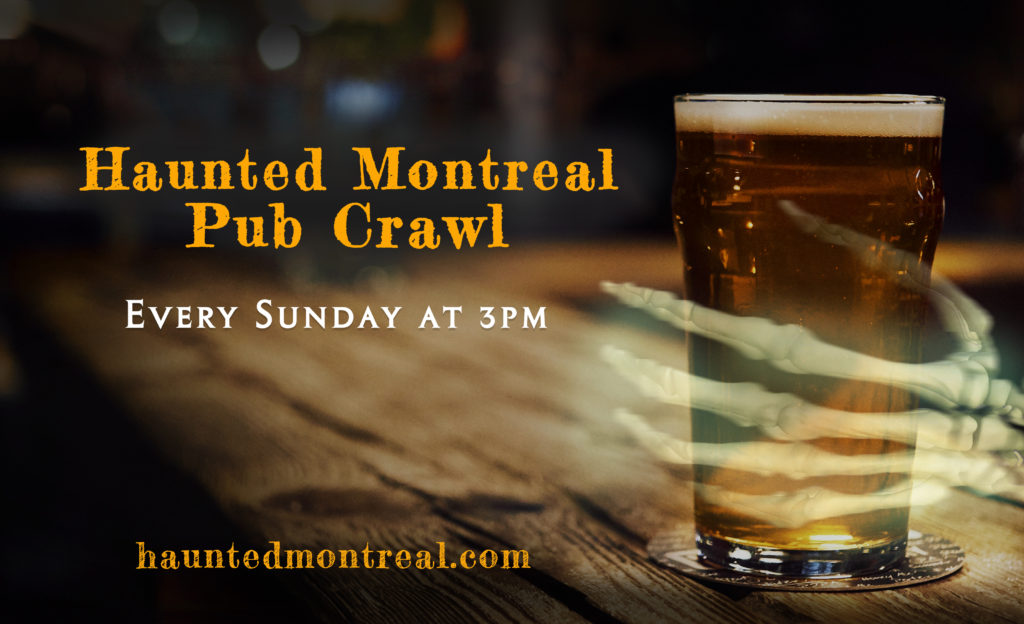
Starting in April, we are also offering our regular tours every Saturday evening on rotation:
Haunted Griffintown Ghost Walk
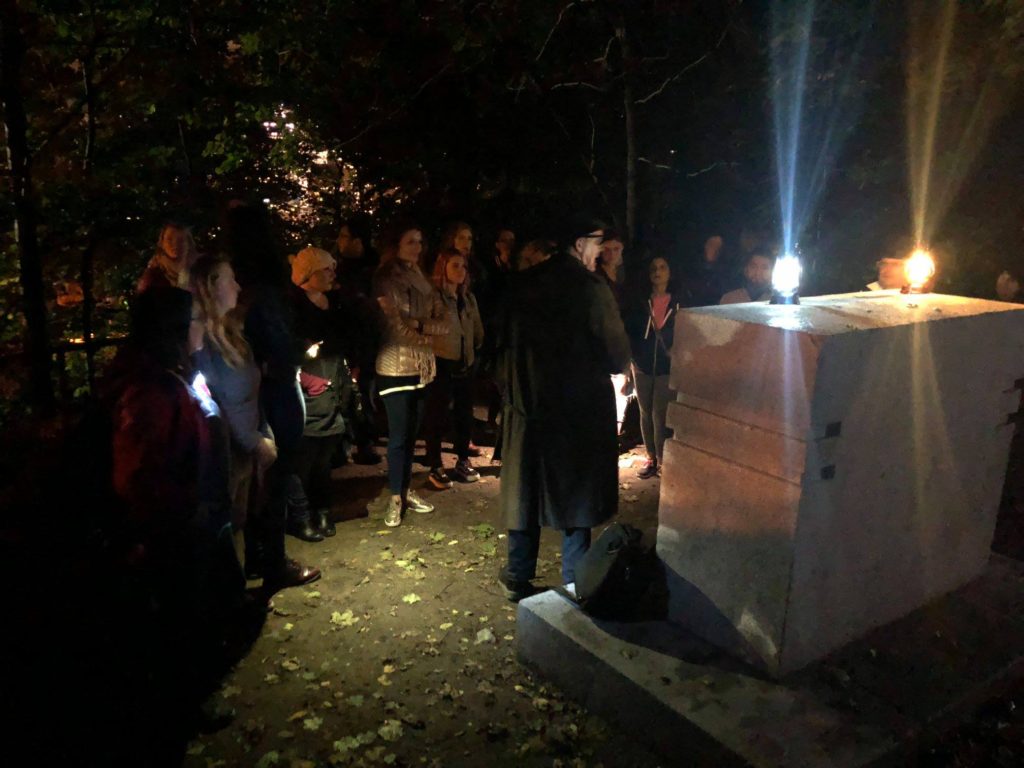
We are also hosting the Irish Famine in Montreal Walking Tour on Saturday, March 19th at 1 pm as a special St. Patrick’s Day event (in English).
Our Virtual Ghost Tour and Paranormal Investigation are also available on demand!
Want to give the gift of a haunted experience for the 2022 season?
You can now order a Haunted Montreal Gift Certificate through our website. They are redeemable via Eventbrite for any of our in-person or virtual experiences. There’s no expiration date.
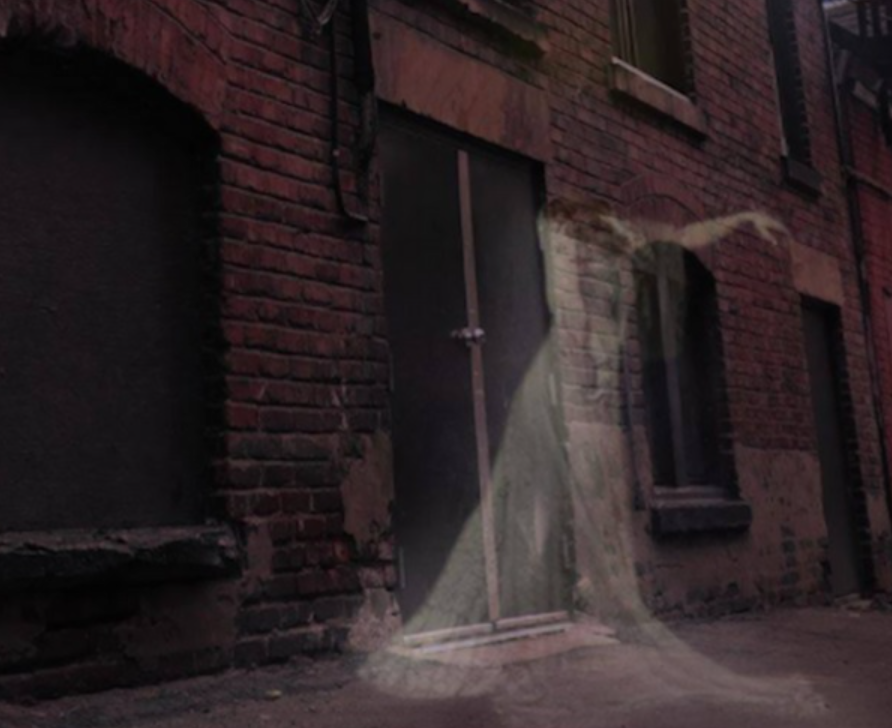
Lastly, we now have an online store for those interested in Haunted Montreal merchandise. More details are below in our Company News section!
This month we explore a Victorian era ghost story set in Montreal called The Whittakers Ghost. Famous Irish dramatist George Bernard Shaw allegedly wrote this spooky tale about an apparition who comes to visit a family and their guests.
Haunted Research
Haunted Montreal researchers have unveiled a ghost story set in Montreal from 1879, when it first appeared in a mysterious publication called The Argosy. Entitled The Whittakers Ghost, the author who was identified only as “G.B.S.” wrote: “The following ghost story has been told me, word for word, by an eye-witness, and is authenticated by persons of recognized position.”
Famous Irish author George Bernard Shaw, winner of the Nobel Prize in Literature in 1925, allegedly wrote the tale.

For the first time, The Whittakers Ghost is being translated into French, courtesy of Claude Chevalot. We are presenting it to the Montreal public just in time for St. Patrick’s Day!
Haunted Montreal researchers discovered the ghost story in The Eleventh Fontana Book of Great Ghost Stories (1975), edited by R. Chetwynd-Hayes.
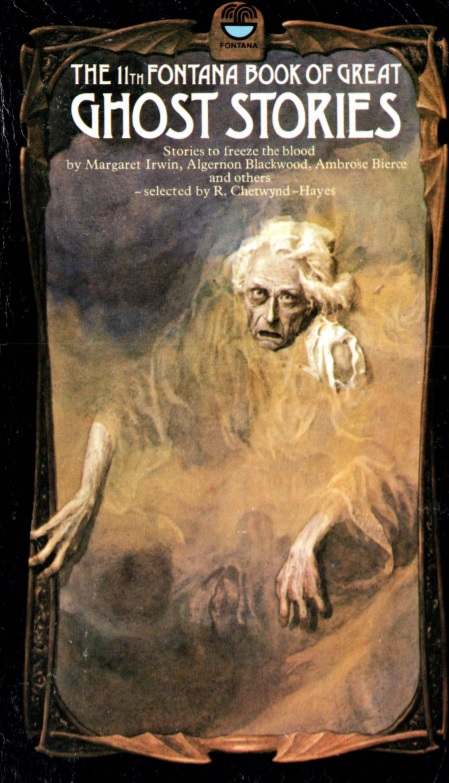
According to Hayes: “The Whittakers Ghost which I found in an old bound volume of Argosy dated 1879, has the apparition wandering around in the garden.”
The Argosy, edited by Mrs. Henry Wood. A., was a collection of monthly editions with short stories, some complete and some in monthly episodes, in many cases illustrated with woodcuts. The Whittakers Ghost appeared in July, 1879 in Volume 28 of The Argosy (pages 73 – 79).
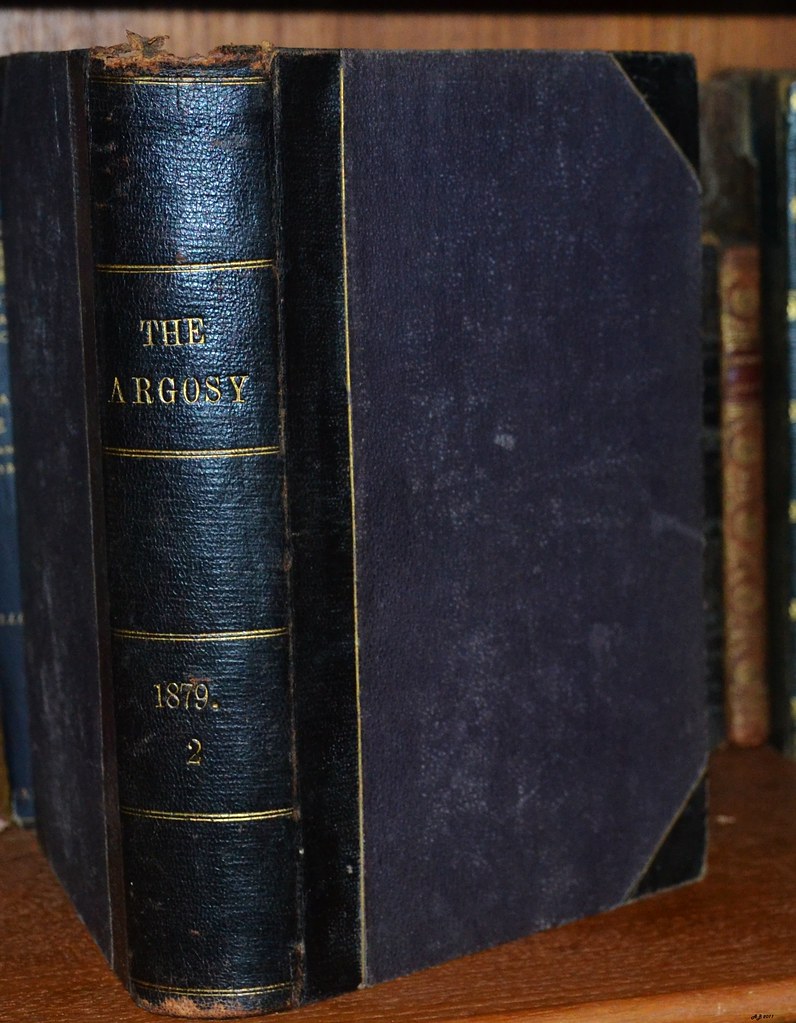
The author, “G.B.S.”, is assumed by many to be none other than George Bernard Shaw. For example, the isfdb (Internet Speculative Fiction Database) lists the author as Shaw, as does Tabula Rasa.
However, the Wikipedia entry for his “List of works” does not include The Whittakers Ghost. Given that none of these websites are particularly reliable, the mystery endures whether or not George Bernard Shaw wrote the ghost story in question.
George Bernard Shaw is famous for his role in revolutionizing comedic drama. He was also a literary critic and a prominent socialist and pacifist. Shaw’s most successful work, Pygmalion, was adapted for Broadway as the musical My Fair Lady.
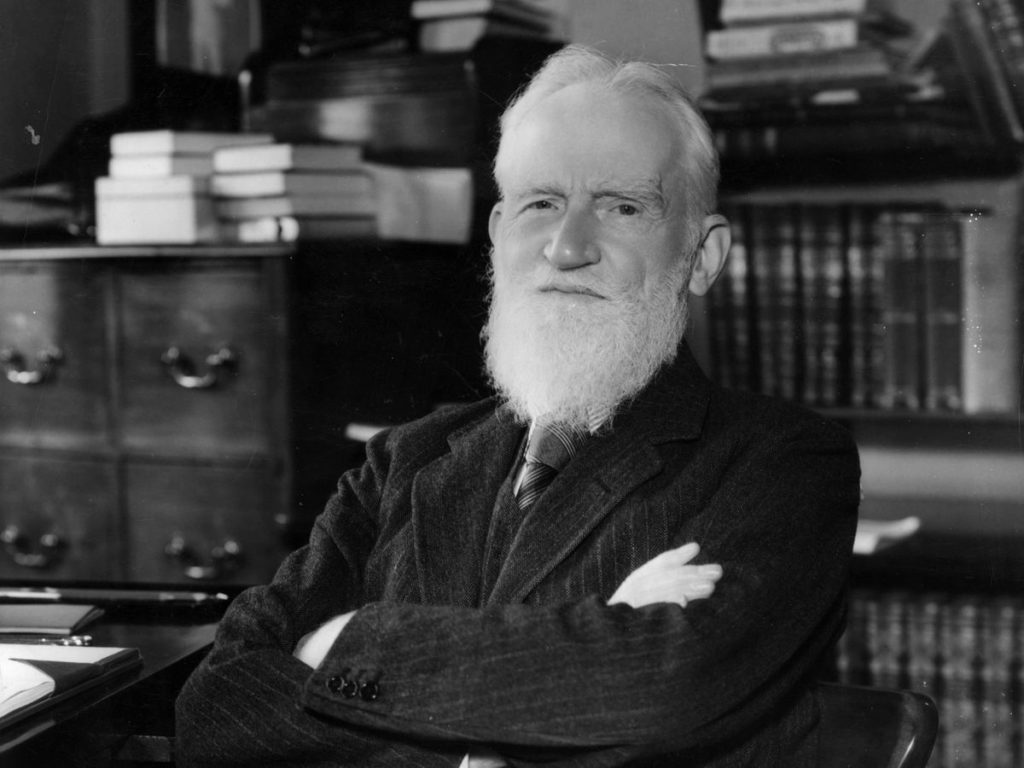
The literary giant won the Nobel Prize for Literature in 1925.
In Canada, George Bernard Shaw is so popular that there is actually has a theatre festival named after him in Niagara-on-the Lake, Ontario. The Shaw Festival, which frequently produces his works, is celebrating its 60th anniversary in 2022.
Amazingly, the Shaw Festival also features a haunted theatre!
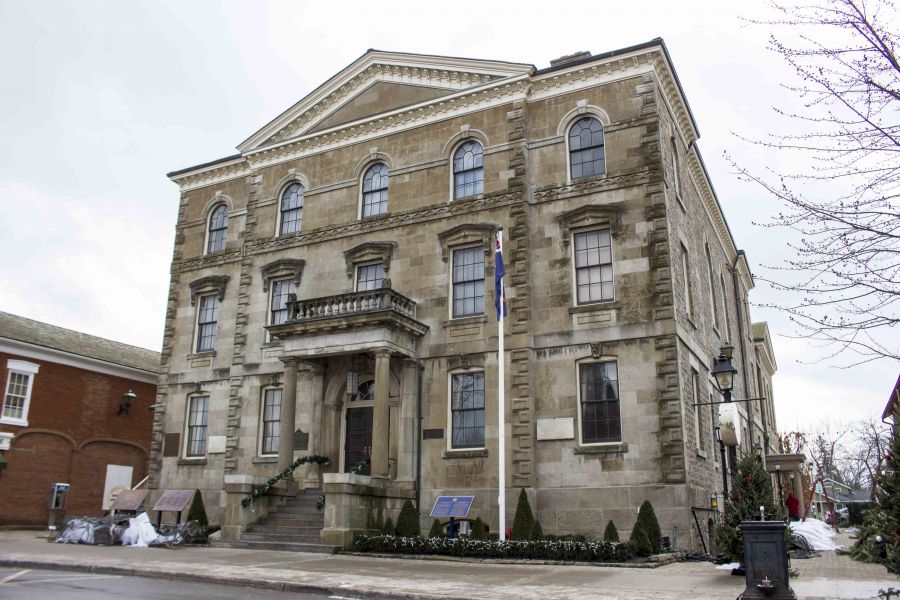
As for The Whittakers Ghost, Haunted Montreal has not yet resolved the question of authorship. Our researchers pledge to continue investigating the origins of this ghostly tale.
In any case, regardless of the author, this classical Victorian ghost story is set in Montreal. It is definitely well-worth reading as a piece of local and historical ghostly literature dating from 1879.
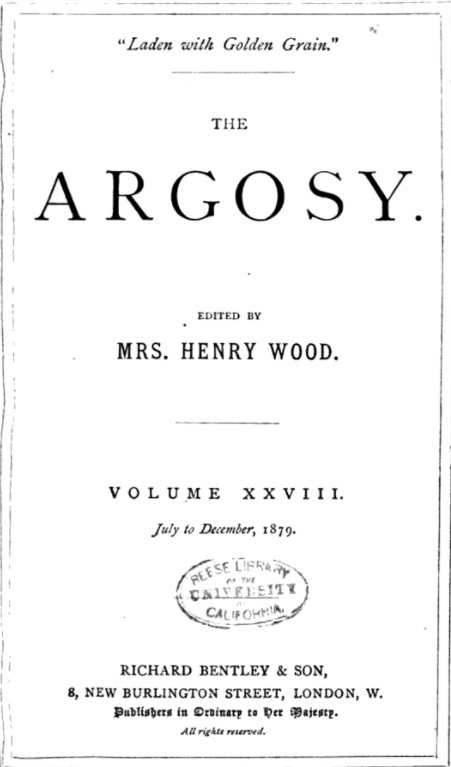
As such, Haunted Montreal is presenting The Whittakers Ghost in its original format and has tasked the talented Claude Chevalot to translate it into French.
If it was indeed written by George Bernard Shaw – or not – a very Happy Saint Patrick’s Day to you all!
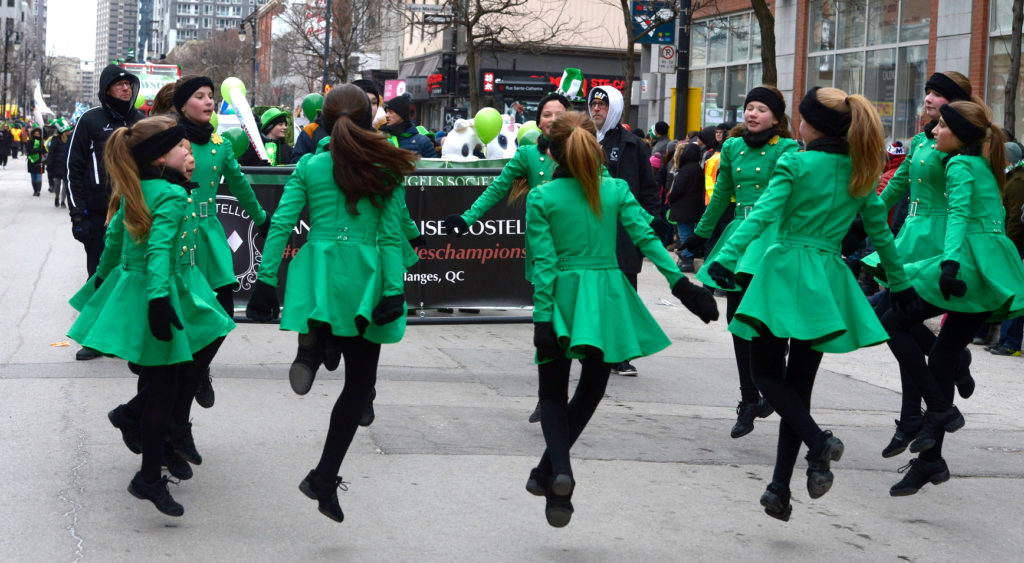
ꙮ ꙮ ꙮ
THE WHITTAKERS GHOST
The following ghost story has been told me, word for word, by an eye-witness, and is authenticated by persons of recognized position.
G. B. S.
My name is Anna Ducane, and I had two sisters, Helène and Louise. About twenty years ago we lived with our parents on our Canadian farm in the neighbourhood of Montreal, that is to say, within about thirty miles of that city. Our life was a very quiet, uneventful one. From time to time we visited among our neighbours in the country, or spent a few days, shopping and sight-seeing, “in town” with our parents; but our excitements were simple and few, and a brood of ducks would serve us for conversation for a week. It is needful to say we enjoyed perfect health, and were all three of us strong, good-natured, and useful girls, who could turn our hands to most household employments, and a good many outdoor jobs as well — having a rather supercilious contempt of affectation and what we called “fine-ladyism.”
All this I mention at the outset, because I wish to show that we were women to whom anything like nerves was unknown. At the time I speak of, Helène and I, who are twins, were nearly two-and twenty, and Louise was about nineteen.
It was in the end of August that we received an unexpected and delightful invitation to spend some weeks in Montreal, at Whittakers, the house of an old Major Whittaker, who, with his two sisters, resided on a very pretty property on the outskirts of the town. Lucy Whittaker, their niece, had been at school with us in Hamilton, and her return from a visit to Europe was the reason of our invitation to her uncle’s house. At first our mother declared she could not think of sending all three of us to stop in a town house; but Lucy wrote and insisted that none should remain behind. There was plenty of space, if we did not mind sharing one big room, like the ward of a hospital, which she was busy preparing for us.
So one evening early in September we found ourselves welcomed to Whittakers by Lucy, looking prettier than ever in a wonderful Parisian dress, the like of which none of us had ever seen. It quite cast into the shade all the elaborate preparations, the flouncings, frillings, and ironings, which had engrossed us all for the last fortnight.
But Lucy was just her own self, despite her smart new wardrobe, and she and Louise became at once as inseparable as they had been at school, while Helène and I fell straightway in love with the old Miss Whittakers, Miss Sara and Miss Hesba. They were different from any old ladies we had ever known; more refined in looks and manners than our country neighbours, and accomplished in many curious arts which now scarcely survive, such as tambour work, and painting on velvet, and playing the harp. We wanted at once to learn everything they could teach us, and thought that our three weeks’ visit would never suffice if we did not begin immediately to be initiated into these mysteries, which were to render us of fresh importance and attractiveness when we should return home.
So we threw ourselves into all sorts of employments with a will, and the days flew by rapidly. Lucy and Louise were generally out of doors together, either in the big, old-fashioned garden behind the house, where they chattered and picked fruit and whispered their secrets by the hour, or in the town itself; sight-seeing and promenading under the protection of a young relation of our hosts’, Harry Leroy, who was, like ourselves, visiting Whittakers for the first time.
A word here about Major Whittaker, who, though not wanting in the hospitality and geniality of a host, somehow was very little seen by his visitors : except at eight o’clock, morning and evening, when he regularly read prayers to his assembled household, and at the two meals that followed. He never appeared downstairs, but spent his time in a little study over the porch, where, if the door stood accidentally open, the passer- by might see him hard at work on his life’s object, a Harmony of the Four Gospels, over which he had been poring for years. I never knew anything of his past history — how he came by his military title, when he had left the army, or what had given him the very strong and peculiar religious opinions which he held. These opinions were enforced upon the household morning and evening at family prayers, when the Major’s long extempore petitions sometimes kept us half an hour at a time upon our knees.
A fortnight of our time at Whittakers had passed very pleasantly, and we were beginning to think, with reluctance, that in another week or so we must be returning home. I mentioned this one after noon to Miss Hesba as we sat at our painting. She scouted the idea at once, declaring that as long as we cared to stay, and the fine weather continued, we must not think of leaving them.
But even as she spoke, Miss Sara got up and looked anxiously out of the window, for it seemed as if the splendid weather was about to break. Clouds had been creeping up since the morning, and a wet, sounding, whistling wind was beginning to haunt the chimneys, and to rattle the red leaves of the maples.
The two younger girls, and Harry Leroy, came in from the garden, and, to our surprise, old Major Whittaker himself appeared from the regions above, shivering as if with cold. “Shut the windows,” he said, “and don’t go out any more this evening.” For we generally spent the hour before and after prayers and supper in the verandah.
We did not heed his words particularly at the time, and soon he went away to his study again.
We spent the early part of the evening pleasantly enough, part singing at the piano. Then came prayers and supper as usual, and then, as we recrossed the hall from the dining- room, some one of us suggested that we should go out upon the steps of the front door and watch the storm which was rapidly coming up, and the clouds which dashed across the full moon, hanging like a red globe over the St. Lawrence.
I do not think either host or hostesses saw us, and we had quite forgotten the Major’s counsel that we should not go out again that evening. We left the hall- door ajar, and stood out upon the gravel in front of the house, we four girls and young Mr. Leroy.
In order that the following circumstances may be clearly understood, I must explain a little the topography of Whittakers. a long, two-storied house, standing a little back from the road which ran into Montreal, and its entrance was not unlike that of many modern English villas. It had two wooden gates, both opening upon the road, which always stood wide, and these were connected by a semicircular sweep of gravel in front of the house, edged with laurels and shrubs. The big garden, orchard, and fields were all behind the house, which in front approached within about fifty yards of the highway. The hall door of Whittakers stood always open during our visit-it was two leaves of battered, weather-stained oak, and on its outside were the marks whence two large knockers had evidently been removed. We had remarked their removal before, and Mr. Leroy had said he supposed the rattle of the knockers had interfered with the Harmony of the Four Gospels in the study above.
As we stood upon the gravel walk we all five distinctly heard the noise of a heavy carriage approaching from the town along the road in front of us, apparently having two, or even four horses, and driven at a great pace. We could not see it for the laurels which intervened between us and the road on either side, but we knew it was rapidly drawing near the gate. Its approach interested us, for it was now nearly ten o’clock, and a visitor at such an hour was unheard of. But if not coming to Whittakers, whither could the carriage be going? for it was the last house of any importance for miles along that way.
We stepped back into the doorway, and found ourselves suddenly caught and dragged in by old Major Whittaker, who, trembling with excitement, and with his queer flowered dressing- gown fluttering round him, as though he had been just aroused from bed, somehow whirled us all into the hall, and banged — to the great leaves of the door with a noise that made the house shake.
But above all the rattle of chains and bars, for the old man was busy securing the door as if for a siege — we heard the approach of the carriage, which, as we expected, turned in at the gate and drew up, with a crack of the whip and a splutter of gravel when the horses were sharply pulled in at the hall steps.
We all five heard it; and so, I am sure, did Major Whittaker and his sisters, who had also come out into the hall. Not one of us dared say anything, for we were awed by the intensity of excitement which characterised every movement of our host.
A moment afterwards the old door was almost battered in by a furious assault upon it with the iron knocker, and, looking in each other’s faces, we all recollected simultaneously that there was no knocker there. “Let us pray,” said Major Whittaker’s voice above the noise. We all knelt down where we were, while he poured forth a long, rambling prayer, in which he entreated to be delivered from some evil and ghostly influence; but we were all too frightened and excited to listen much. Lucy and Louise were both crying and receiving an undercurrent of consolation from Harry Leroy, while our host prayed on in a high, unnatural tone. The hammering on the front door continued at intervals.
However, these grew longer and longer, and at last the sound ceased altogether. Not so the prayers, for though I was longing to get away to our room, which also looked to the front, to see if the carriage remained at the door, the old Major kept us quite half an hour, without any reference to the usual family worship, which had been punctually performed as usual two hours before.
When at last we retired to our room our first rush, of course, was to the window, but all that was to be seen was the moon riding high in the sky, and the storm clouds sweeping past — no trace of a carriage or its occupants anywhere. Of course we lay awake till morning, discussing the extraordinary event, and Lucy came creeping in to sleep with Louise, too frightened to remain by herself.
I ought to explain that she was almost as much a stranger to Whit takers as we were, having been lately left an orphan to the charge of her uncle, who had at first sent her on a tour with some friends to Europe. Consequently the bombardment of the house by the ghost and the spectre knocker (for we were convinced that what we had heard was supernatural) was as terrible to her as to us.
The next morning it seemed as if all the pleasure of our visit was gone, and—a straw will show which way the wind blows – on some reference being made to our return home, I was struck, but not altogether astonished, to find that no opposition was made to our carrying out our intention, even by Miss Hesba. The two old ladies were evidently miserable and ill-at-ease about something, and though no allusion was made to the occurrence of the night before, it was in all our minds, and rose up between us and all enjoyment.
Our pleasant morning employments were not resumed, for the Misses Whittaker were closeted upstairs with their brother, and we younger ones preferred keeping all together in the garden, where the sun shone and we seemed to be out of the supernatural influence which invested the gloomy old place. Harry Leroy confided to us that he had investigated the front of the house, and that traces of the wheels of a heavy vehicle and the hoof -marks of a pair of horses were distinctly visible upon the gravel!
By-and- by, when we came in to early dinner, Miss Sara took me aside, and, twisting her watch-guard about in her hands from nervousness, explained that she and her brother thought perhaps it would be better, “under the unfortunate circumstances,” that our visit to Whittakers should end as soon as possible. Without actually saying so, she gave me to understand that the annoyance of the previous evening was not by any means over.
I was glad of her plain speaking, for though I did not personally mind the “ghost,” as we had already taken to call this disturbing influence, among ourselves, I could not bear the change which had so suddenly fallen upon the previously cheerful household. Besides, I dreaded its effect upon Louise, who was of a very excitable temperament. So I gladly arranged with Miss Sara to have a note ready for my mother, to be sent that afternoon by a special messenger, to prepare her for our unexpected return home, as soon as four disengaged places could be obtained in the stage, which in those days was the means of communication between Montreal and our nearest village. Four places — for I persuaded Miss Whittaker to let us take Lucy with us. I could not bear the idea of leaving the girl companionless, though her aunt said, with a sigh: “Lucy is one of us, and must learn to bear this as we do!”
That night we again all slept together in the big front bed-room. I must mention that I had not told any of the others of Miss Sara’s hint that possibly the ghost was not yet laid to rest, for, I thought, we had talked over the matter quite enough. So I incited Lucy to tell us some of her European experiences, and we all went to sleep in the middle of her description of Cologne Cathedral.
We must have slept about two hours or so, when I was awakened by a sharp pinch from Helène, and called out, “ What are you doing ? ” before I opened my eyes. “Hush! it is here in the room!” woke me up thoroughly. I saw her face looking, pale in the dim light, towards the window, a large bow, which occupied the whole end of the room to the right hand of our bed. Louise and Lucy slept in another bed on our left, and consequently further from the window.
I followed the direction of her looks with my eyes, but without stirring, for her words had given me an uncomfortable kind of thrill. There, behind the big dressing-table, which stood in the centre of the bow-window , but well into the room, leaving a considerable space clear behind it, I saw a tall veiled figure, which something told me at once was not human. It was muffled from head to foot in trailing, grey garments, and something was wrapped about its head, but from its long, swinging strides — for it paced to and fro in the little enclosure between window and table—I guessed it to be a male figure, though the garments were womanly, or perhaps monkish. At first it did not appear to notice us, but presently it began somewhat to slacken its regular walk, and turning its hooded head towards us, seemed to be intently regarding us. My hand was tightly locked in Helène’s, and I know the same thought was in both our minds: “What if it comes into the open part of the room, and near either of the beds?”
Suddenly a little gasp from the other bed told us that the other girls were also awake ( it was too dark to see their faces), and Louise’s voice broke the intense silence. In that Name to which all powers must yield, she commanded it to be gone.
This from Louise, the most timid and nervous of us all! I forgot the ghost in my amazement, and turned to look at her, as she sat up in bed, a trembling little white figure.
A moment after, when I looked to the window, the ghost was gone. Louise had exorcised it. She was crying bitterly now, and shaking all over. Helène and I jumped up and crowded round her, patting and soothing her until her sobbing ceased.
“I don’t know what put it into my head to do it, I’m sure, “she explained; “ but I had been looking at the dreadful thing so long: long before any of you woke—and at last I felt I should go mad if I did not speak. I could see his eyes quite plainly, like two lamps, looking me through and through, and I knew it was I who must speak to him.”
By-and-by, when we were all a little calmer, I told the girls of Miss Sara’s confidence to me, and also of our arrangement to return home as soon as our journey could be settled. Lucy cried out that she could not be left behind, and hugged me when I said that, of course, she was to go with us, for as long as she liked to stay. “I can never come back to this dreadful house,” she declared; and would take no comfort from the suggestion, which I had picked up from Miss Sara’s conversation, that long intervals, sometimes of years, elapsed between these ghostly visitations.
So the night wore away, and with earliest dawn we were all glad to rise, and get through some of our packing, so as to shorten as much as possible our stay in the haunted bed- chamber.
After breakfast, Helène and I took Miss Whittaker aside, and told her the events of the night. They impressed, but evidently did not astonish her, and her only question when we finished was, “Did the figure attempt to approach any of you?”
“No,” I answered; “though Louise declares its face and burning eyes were distinctly turned upon her.”
Our hostess sighed, but made no comment, and my twin – sister and I went away upstairs to finish the preparations for our departure, for it was decided we were to leave Whittakers that day at noon. These were soon completed, and Helène and I were about to descend to spend the last hour or two with the old ladies, when Lucy and Louise, who had been round the garden for the last time, rushed up the oak staircase and into the room, and I saw in a moment, by their disordered looks, that they had seen something more.
Yes, the ghost had again appeared, and the girls were still shaking with nervousness when they told their story.
“It was in the box-walk, ”said Louise,“ and Mr. Leroy was with Lucy went away for a few minutes, just as we reached the end, to pick herself some nuts in the shrubbery, and Mr. Leroy began telling me how sorry he was our party was to be broken up, and might he come and see us at home. I said ‘ of course, ‘ and just then we felt something close behind us (we were standing side by- side), and thinking it was Lucy, we turned and saw the horrible figure at our elbow, laying a hand upon the arm of each of us! An instant afterwards it was gone, but Lucy, who was coming up from the other end of the walk, had also plainly seen it, its back being towards her; so it was no imagination.”
No, it was no imagination. I told the whole story to Miss Whittaker before we left the house. This time the poor old lady broke down completely, and, wringing her hands, accused herself of bringing ruin upon two young lives. Then, seeing my astonishment, she was obliged to explain that it was a sign, too fatally proved to be true, of approaching death, when the veiled figure laid his hand upon any person to whom he chose to show himself. Her words sank like lead into my heart.
There is little more to tell.
Our little Louise fell ill of a strange low fever, soon after our return to the farm, and before Christmas she had left us forever. Harry Leroy never paid his contemplated visit, for he, too, died, by the accidental discharge of his gun, a few weeks after we parted from him. The only happy consequence of our stay at Whittakers was Lucy’s marriage to a neighbour of ours, who wedded her from our house, and by- and-bye took her South, so that for some time we lost sight of her, and heard no news of her relations. When we met again she told us her uncle had died quietly one evening, after completing his life’s work—the Harmony of the Four Gospels. Her aunts had shut up the house, which was their own, and had gone to live beyond Hamilton. I never saw them again; nor did I see much more of Lucy, for our own family ‘removed at this time to England, and our Canadian ties were broken.
Whether the curse still lies upon the old house, or whether the house itself still stands, I know not, but the foregoing is a true and unexaggerated account of what we underwent there.
ꙮ ꙮ ꙮ
Company News
We are thrilled to announce that our team is releasing videos every Saturday, in both languages, of ghost stories from the Haunted Montreal Blog. Hosted by Holly Rhiannon (in English) and Dr. Mab (in French), this new initiative is sure to please ghost story fans!
Please like, subscribe and hit the bell!
As the pandemic wanes, Quebec’s Public Health Department is starting to lift restrictions such as physical distancing, mask-wearing, vaccine passports and limited numbers in bars.
For our first tour of the year, we are hosting the Irish Famine in Montreal Walking Tour on Saturday, March 19th at 1 pm as a special St. Patrick’s Day event (in English).
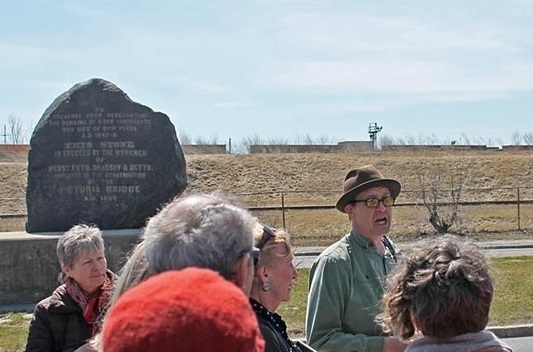
We are also re-booting our Haunted Pub Crawl as of Sunday, March 27th. It is being offered every Sunday at 3 pm in English and on the last Sunday of the month at 4 pm in French.
In April, we are restarting our ghost walks as public and private tours. We feature a public ghost walk every Saturday night at 8 pm (in French) and 8:30 pm (in English).
The Haunted Downtown Ghost Walk (April 9, 23; May 14)
The Haunted Griffintown Ghost Walk (April 2, 16; May 7, 28)
The Haunted Mountain Ghost Walk (April 30; May 13, 21)
Our Virtual Ghost Tour and Paranormal Investigation are also available on demand!
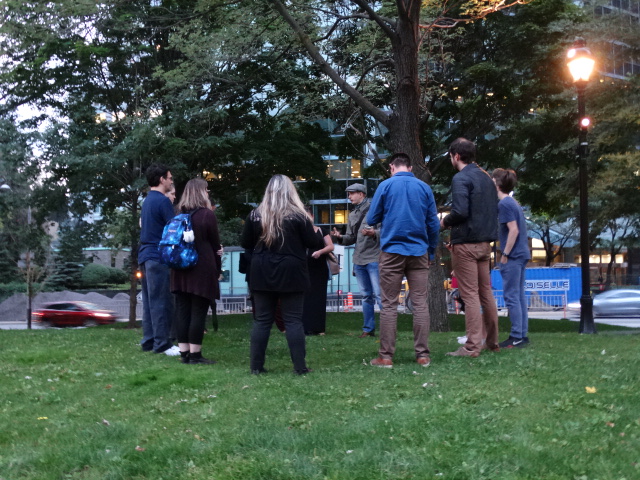
For private tours, clients can request any date, time, language and operating tour. These tours are based on the availability of our actors and start at $170 for small groups of up to 7 people.
Email info@hauntedmontreal.com to book a private tour!
Please spread the word to those who might be interested in a Haunted Montreal experience and if you want to send someone a haunted experience as a gift, now you can.
We are offering Haunted Montreal Gift Certificates through our website and redeemable via Eventbrite for any of our in-person or virtual events (no expiration date).

Finally, we have opened an online store for those interested in Haunted Montreal merchandise. We are selling t-shirts, magnets, sweatshirts (for those haunted fall and winter nights) and mugs with both the Haunted Montreal logo and our tour imagery.
Purchases can be ordered through our online store: shop.hauntedmontreal.com

Haunted Montreal would like to thank all of our clients who attended a ghost walk, haunted pub crawl, paranormal investigation or virtual event during the 2021 season!
If you enjoyed the experience, we encourage you to write a review on our Tripadvisor page, something that really helps Haunted Montreal to market its tours.

Lastly, if you would like to receive the Haunted Montreal Blog on the 13th of every month, please sign up to our mailing list.
Coming up on April 13th: Chateau du Ramezay
Across the street from City Hall in Old Montreal sits the Ramezay Manor, one of the oldest buildings in Montreal – and by far one of the most haunted. The Chateau was built in 1705, during the New France era, as the Governor’s residence. Following a host of other vocations, in 1895 the Ramezay Manor was made into Canada’s first museum. It is still open to this day. Inside, tourists often report various hauntings: the sounds of phantom footsteps, moaning noises coming from the fireplace, and people wearing period costumes who vanish into thin air. Stories from former staff members are even worse. Many people suspect that Miss Anna O’Dowd, the former curator who died in the Chateau du Ramezay, is responsible for much of the paranormal activity.
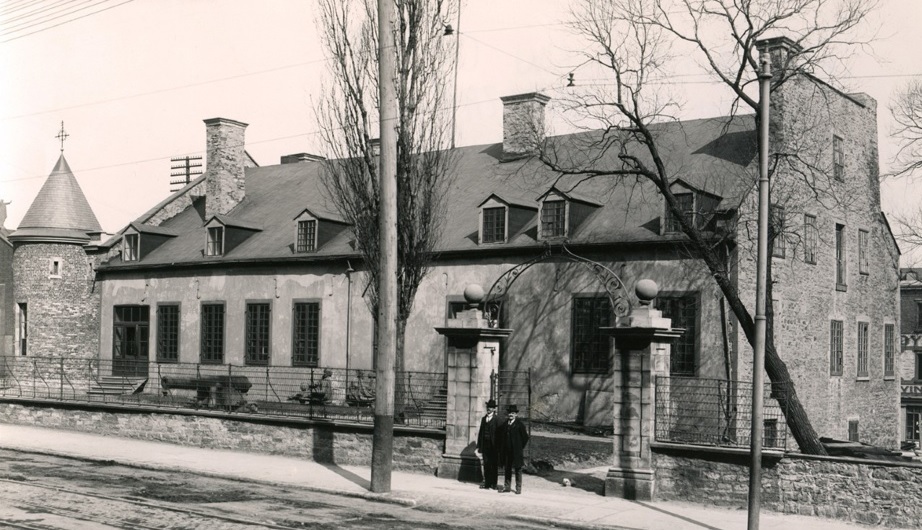
Author:
Donovan King is a postcolonial historian, teacher, tour guide and professional actor. As the founder of Haunted Montreal, he combines his skills to create the best possible Montreal ghost stories, in both writing and theatrical performance. King holds a DEC (Professional Theatre Acting, John Abbott College), BFA (Drama-in-Education, Concordia), B.Ed (History and English Teaching, McGill), MFA (Theatre Studies, University of Calgary) and ACS (Montreal Tourist Guide, Institut de tourisme et d’hôtellerie du Québec). He is also a certified Montreal Destination Specialist.
Translator (into French):
Claude Chevalot holds a master’s degree in applied linguistics from McGill University. She is a writer, editor and translator. For more than 15 years, she has devoted herself almost exclusively to literary translation and to the translation of texts on current and contemporary art.




This was a super fascinating GHOST STORY